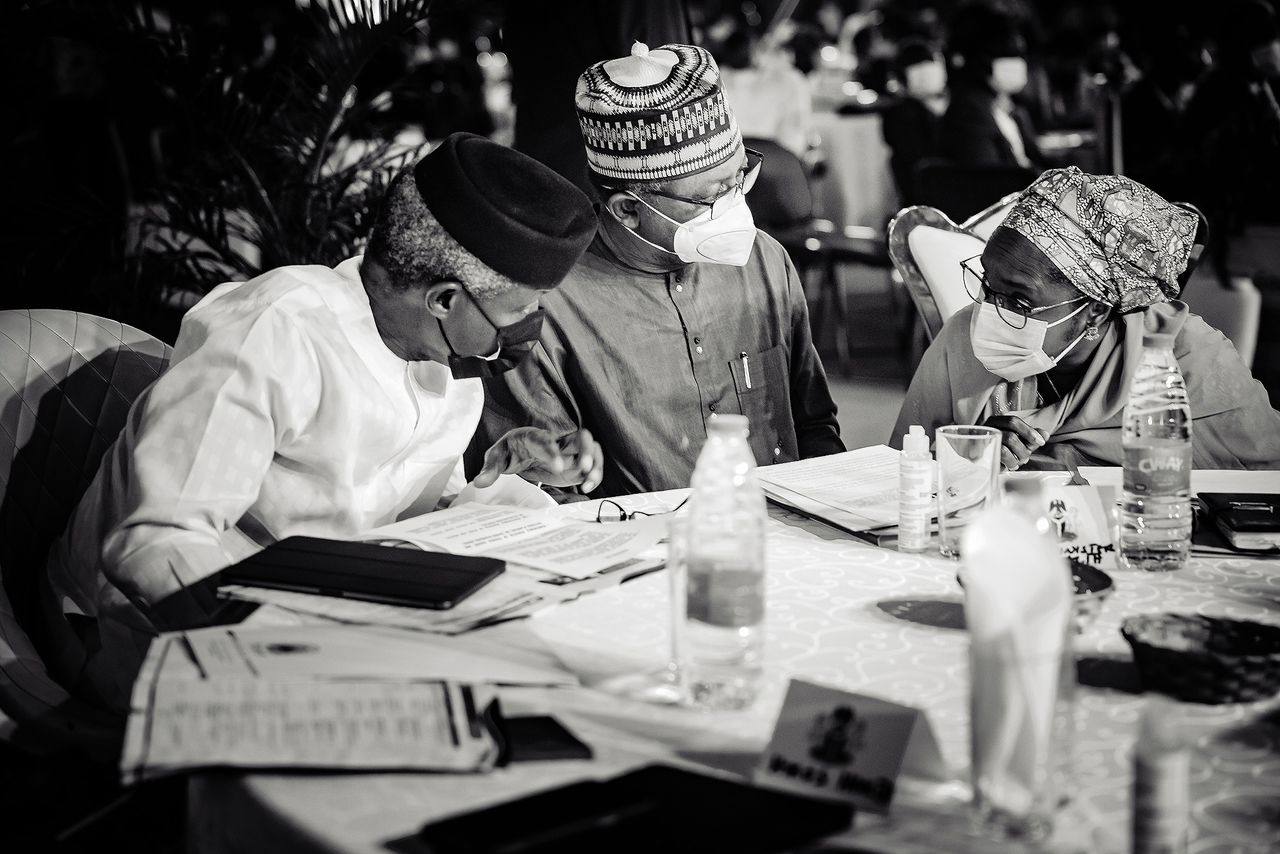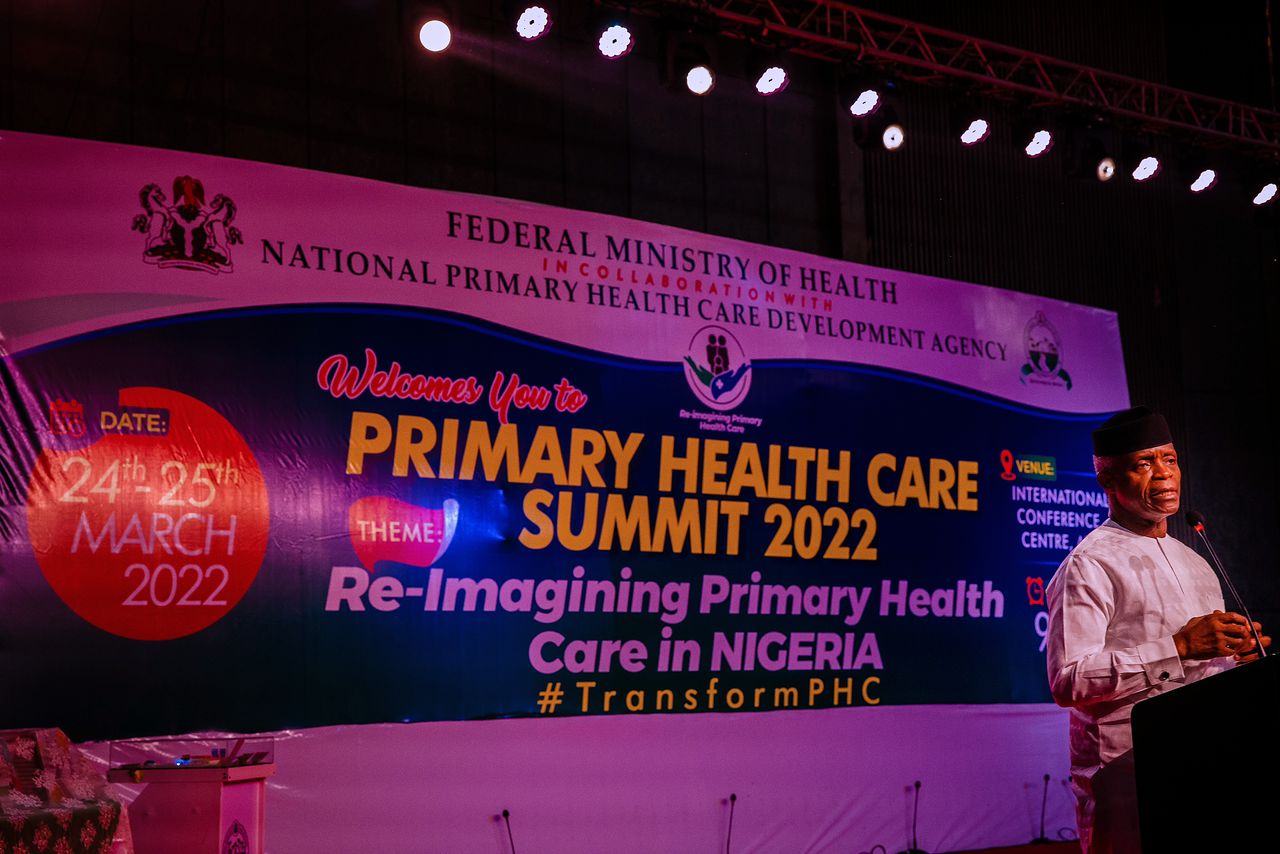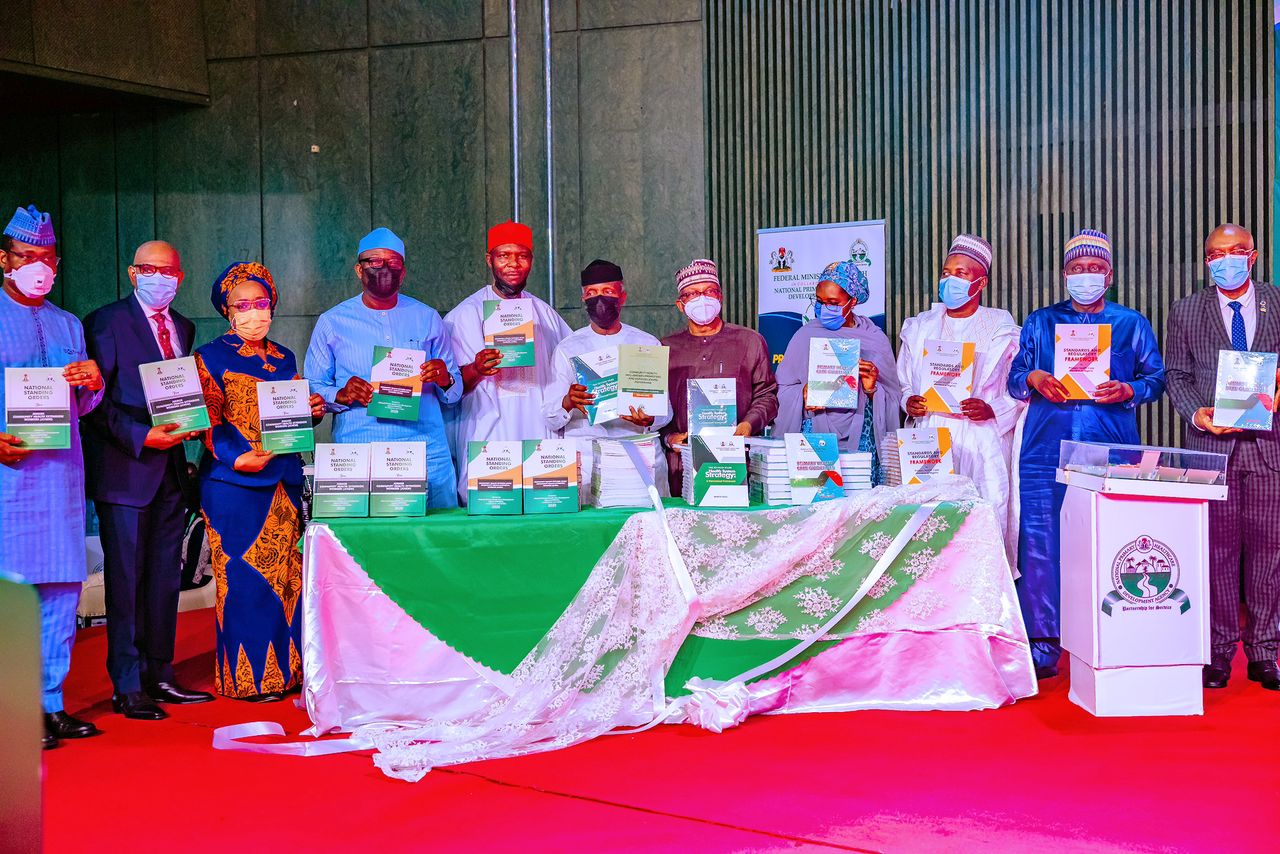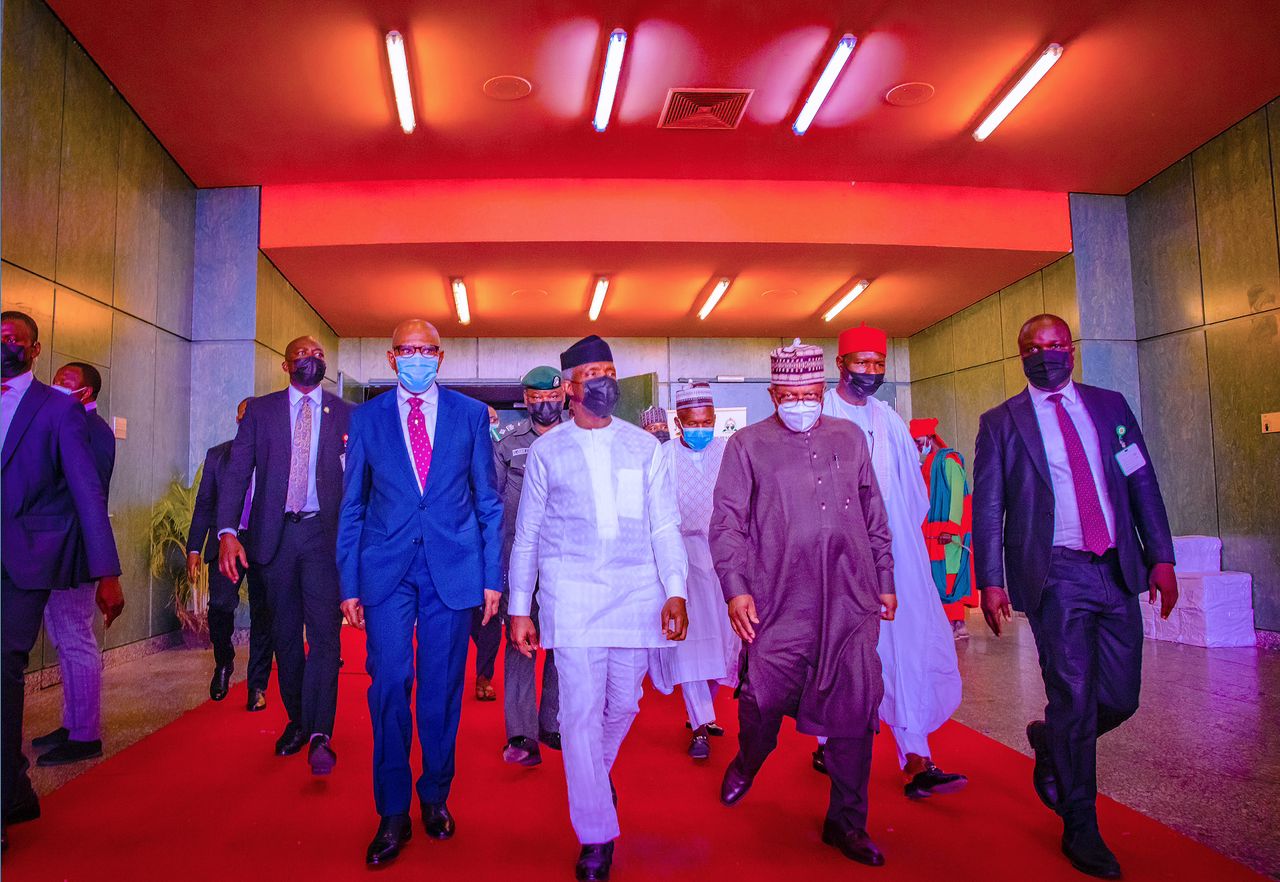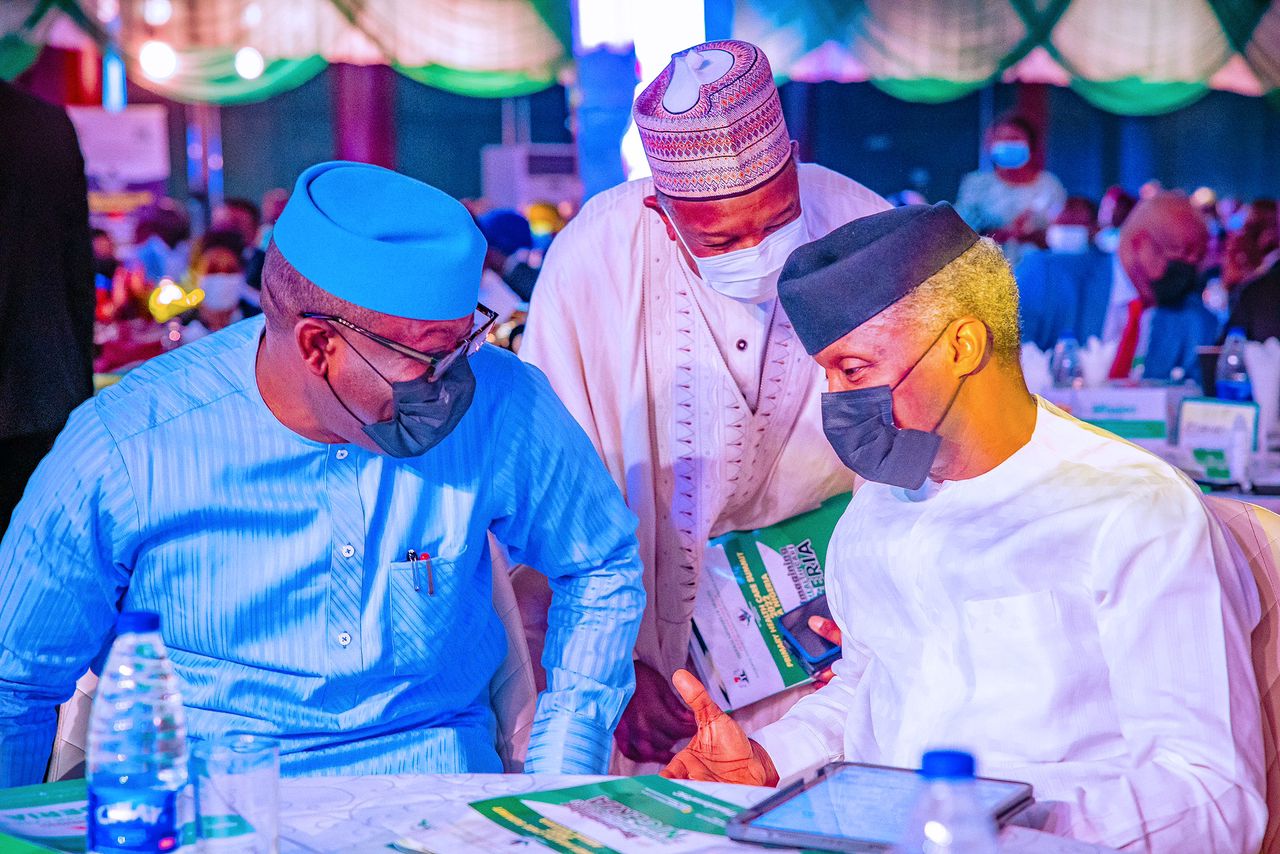Primary Healthcare Summit 2022 Themed: Re-imagining Primary Healthcare In Nigeria
ADDRESS BY HIS EXCELLENCY, PROF. YEMI OSINBAJO, SAN, GCON, VICE PRESIDENT OF THE FEDERAL REPUBLIC OF NIGERIA AT THE PRIMARY HEALTHCARE SUMMIT 2022 THEMED: RE-IMAGINING PRIMARY HEALTHCARE IN NIGERIA AT THE INTERNATIONAL CONFERENCE CENTRE, ABUJA ON THE 24TH OF MARCH, 2022
PROTOCOLS
The Federal Ministry of Health and the National Primary Health Care Development Agency deserve our commendation for providing this important platform for rethinking primary healthcare in Nigeria, especially in the wake and immediate aftermath of the Covid-19 pandemic.
The Covid-19 pandemic was an eye-opener for me in at least five important respects; the first is that a health challenge of sufficient enormity can cripple the global economy and severely worsen the circumstances of the weakest economies and most vulnerable groups.
We saw this happening with global growth in negative territory for months, massive supply chain disruptions leading to inflation and millions more going into unemployment and extreme poverty all on account of a severe enough health challenge.
The second is how some of the wealthiest and most developed economies of the world were tragically unprepared to handle a public health crisis on the scale and uncertainty of Covid-19, whereas countries with more modest economic profiles quickly deployed a public health framework, especially at the primary level that was responsive and effective, which emphasizes that smart and effective management of healthcare is probably as important as the availability of resources.
The third is that when there is a global health crisis on the scale of the Covid-19 pandemic, we cannot expect any or much help from anyone. Every nation is in such time on its own. The vaccine nationalism first response of wealthier countries to the distribution of vaccines was certainly a wakeup for poorer countries. Happily, things have improved with the greater availability of vaccines, and we must commend those countries that have made generous donations to African countries and other developing economies.
The need for more effective health security plans has since occupied the thoughts of leaders at national, subregional and regional levels. And there is as we heard, cheering news about the preferment of our country for vaccine production in our region.
The fourth is that despite infrastructural weaknesses we have an experienced and robust public health system, peopled by some of the best personnel in the world. You heard Dr Faisal brag about how we maintained 56% in routine immunization even during the pandemic.
The fifth is a conclusion from the preceding point – it is that a health system is only as strong as its primary health system. And this is true either in dealing with infected patients in a pandemic or effective vaccination programs, especially in populous countries. But it is especially the case that because of the preventive focus of primary healthcare, any investment in healthcare is a wise investment in the social and economic well-being of society since invariably fewer people will be ill and thus not require the more expensive specialist care.
So this year, as we mark 4 decades of the anniversary of the Alma-Ata Declaration on primary healthcare, I think we should reflect on the state of primary healthcare in Nigeria, especially tracking progress in some of the key components of Primary Health Care, especially in Public Education, Proper Nutrition, Clean Water and Sanitation, Maternal and Child Health Care, Immunization, Local Disease Control, Accessible Treatment and Drug Provision.
We have heard already of the exceptional progress that has been made in the provision of some of these components, the Basic Healthcare Fund seeking to address the cost of healthcare for the poor, the freshly designed primary healthcare facilities that have steady water supply, solar power, staff quarters, perimeter fencing, and now the KekeNAPEP mini ambulances.
Also, the Federal Government of Nigeria’s Covid-19 response measures, including the health sector component of the Economic Sustainability Plan, the establishment of Healthcare Sector Intervention Fund Facility which has already been disbursed somewhere in the order of N80 billion to finance the acquisition and installation of critical medical equipment and the expansion of production lines in some pharmaceutical companies.
There are also the WASH Initiatives, especially the “Clean Nigeria: Use the Toile” Campaign led by the Federal Ministry of Water Resources. The extensive work now being done by the National Council on Nutrition, and the National Food Systems Dialogues and special initiatives on large scale food fortification such as the Food Processing and Nutrition Leadership Forum led by Alhaji Aliko Dangote.
However, it is evident that far more needs to be done. Permit me three trends of thought as we re-imagine primary healthcare in Nigeria. First is dealing with out-of-pocket expenses by compulsory health insurance where premiums for certain categories of vulnerable groups are paid by the government.
As the Honourable Minister of Finance has said the target is 100% coverage for the poor and vulnerable in the short to medium term. There is no way that healthcare funding can be paid for by government budgets alone. The size of the Federal Government’s budget is so constrained, there’s no way it can fund healthcare by just budgets. Healthcare insurance is an important pool of resources for funding healthcare on the scale that would be required for a country of 200million people.
The second is addressing some of the drawbacks occasioned by the concurrent constitutional status of primary healthcare. There is a great need for synergy to prevent a situation where the Federal, States, Local Governments and private persons from duplicating primary health facilities and there is no real planning around what should be where.
The third is encouraging and supporting serious private sector interventions. Two examples come to mind; the first is the Adopt-a-Primary-Health-Facility Programme pioneered by Mr. Aig Imoukhuede’s ABC HEALTH in collaboration with the Private Sector Health Alliance of Nigeria (PSHAN) founded by Aliko Dangote, Jim Ovia and Aigboje Aig-Imoukhuede.
Their goal is to establish a chain of Primary Healthcare Centers (PHCs), across Nigeria’s 774 Local Government Areas and apply market-based reforms to provide low-cost health services at decent standards to the poor and vulnerable. This is an important initiative and as we will see, it will bring in some of the private sector efficiencies into primary healthcare delivery.
The other is the EHA Clinics operating mainly in Kano and Bauchi led by Dr Hananiya. Through its Reach Programmes, EHA has brought effective healthcare to over 11,000 people in Kano alone.
The effort leverages partnerships with non-governmental organisations and pharmaceutical companies to negotiate treatment prices and also train community health extension workers to provide affordable primary healthcare services to people in the communities. Aside from funds that the private sector would bring, they would also bring to the task, models of efficiency and cost-saving market-driven ideas.
On the 27th of January 2022, the President inaugurated the Health Care Reform Committee; a robustly constituted committee with representation from the States, healthcare-related professional groups and associations, and medical academia.
The primary objective is to reengineer our healthcare delivery system such that it becomes in the President’s words “people-centric, modern and virile.” A healthcare system that addresses the depressing health indices frontally.
I was asked to chair that committee and since then I have interacted with a broad range of institutions and individuals and it is evident that there is a great deal of excitement and expectation about what is possible and we expect in the next few months to see some progress in redesigning our healthcare system with so many of the great ideas that we already have.
Finally, let me again commend the Honourable Minister of Health Dr. Osagie Ehanire, whose openness to ideas and innovation and his own personal commitment has advanced the cause of healthcare in Nigeria.
His able and supportive colleague, the very experienced and knowledgeable Dr. Olorunimbe Mamora, the Honourable Minister of State Health, Dr. Faisal Shuaib, the dynamic, hardworking and innovative ED/CEO of NPHCDA and his team.
It is now my special pleasure and privilege to formally declare open the Primary Health Care Summit 2022.
Thank you very much.




